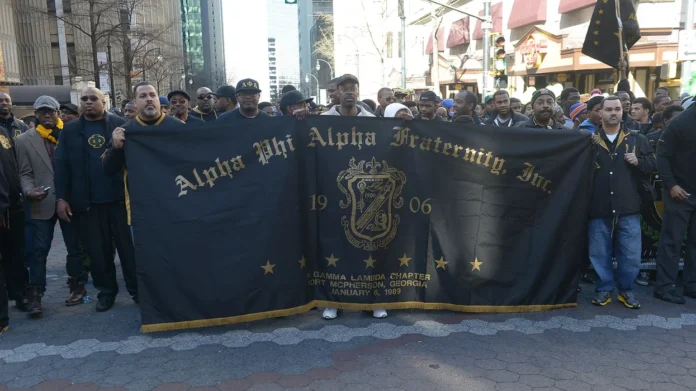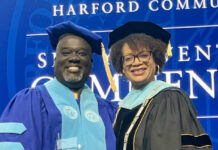
As another election season draws to a close, I find myself reflecting on a familiar refrain — one that has grown all too weary with age. It is the lamentation of the allegedly apathetic African American male, a narrative that persists in depicting my brothers as disengaged and disinterested in shaping our collective future.
As a minister, a professor and a proud, 28-year member of Alpha Phi Alpha Fraternity, I am here to tell you that this stereotype is as damaging as it is inaccurate. It is a misrepresentation that not only erases the fundamental contributions of Black men but also absolves our broader society of its responsibility to dismantle the systemic barriers that hinder true equality.
I have dedicated my life to the pursuit of justice, to the empowerment of marginalized communities and to the fostering of difficult yet necessary dialogues around race and inequity. Through it all, I have consistently found my brothers, my fellow Alphas, standing shoulder to shoulder with me on the frontlines of change.
Alpha Phi Alpha, the first intercollegiate Greek-letter fraternity established for African Americans, was founded on a bedrock of service, scholarship and social justice. From our inception on Dec. 4, 1906, at Cornell University in Ithaca, New York, we have understood that the fight for true equality demands more than sporadic outrage; it requires strategic mobilization, institutional building and an unwavering commitment to the uplift of our people.
Our legacy is one of transformational leadership. Alphas have left an indelible mark on American society, includingMartin Luther King Jr., Thurgood Marshall, Duke Ellington and Langston Hughes to name a chosen few. These men, and countless others like them, didn’t simply bemoan the challenges of their time; they actively organized, advocated and broke down barriers, often at significant personal cost.
Today, that legacy endures. Through our “A Voteless People is a Powerless People” campaign, Alphas has worked tirelessly to educate, register and mobilize Black voters nationwide. We recognize that true power lies not merely in protest but in the ability to shape policy, hold elected officials accountable and ensure our voices are heard in the halls of power. Beyond the political realm, our “Go to High School, Go to College” initiative has inspired generations of young Black and Brown boys to pursue academic excellence and understand education as a liberating force. Through mentorship programs, scholarships and community outreach, we are helping to cultivate a new generation of leaders — men who understand their potential and their responsibility to uplift their brothers and their communities.
Yet, despite this rich history and ongoing commitment to service, the stereotype of the apathetic Black man persists. African American men have always understood the stakes of our struggle. We’ve always known that freedom is not a destination but a journey that demands constant vigilance, strategic action, and an unwavering belief in our inherent worth and dignity, even in the face of systemic racism and discrimination.
Along with 10,000 men worldwide, I’m pleased to model a brand of leadership that is not merely reactive but proactive — that understands the power of collective action, the importance of institution-building and the enduring value of service to others. So, America, let’s move beyond the tired stereotypes and lazy narratives. I invite you to recognize African American men’s accurate and abiding contributions, not just as occasional voters but as steadfast leaders, organizers and change-makers.
In celebration of the fraternity’s founding by our Seven Jewels — Henry Arthur Callis, Charles Henry Chapman, Eugene Kinckle Jones, George Biddle Kelley, Nathaniel Allison Murray, Robert Harold Ogle and Vertner Woodson Tandy — we celebrate their legacy and all who’ve come before us. Together, we wholeheartedly commit to inspiring a new generation to embrace the challenge and the privilege of leadership in their communities and world. Remembering the most accurate measure of a people is its ability to survive, thrive, transform and leave the world better than it found it. Such is the Alpha way:
“First of All, Servants of All, We shall transcend All.”
Johnson is a United Methodist pastor, the author of “Holding Up Your Corner: Talking About Race in Your Community” and program director for the Bridge Alliance, which houses The Fulcrum.






















